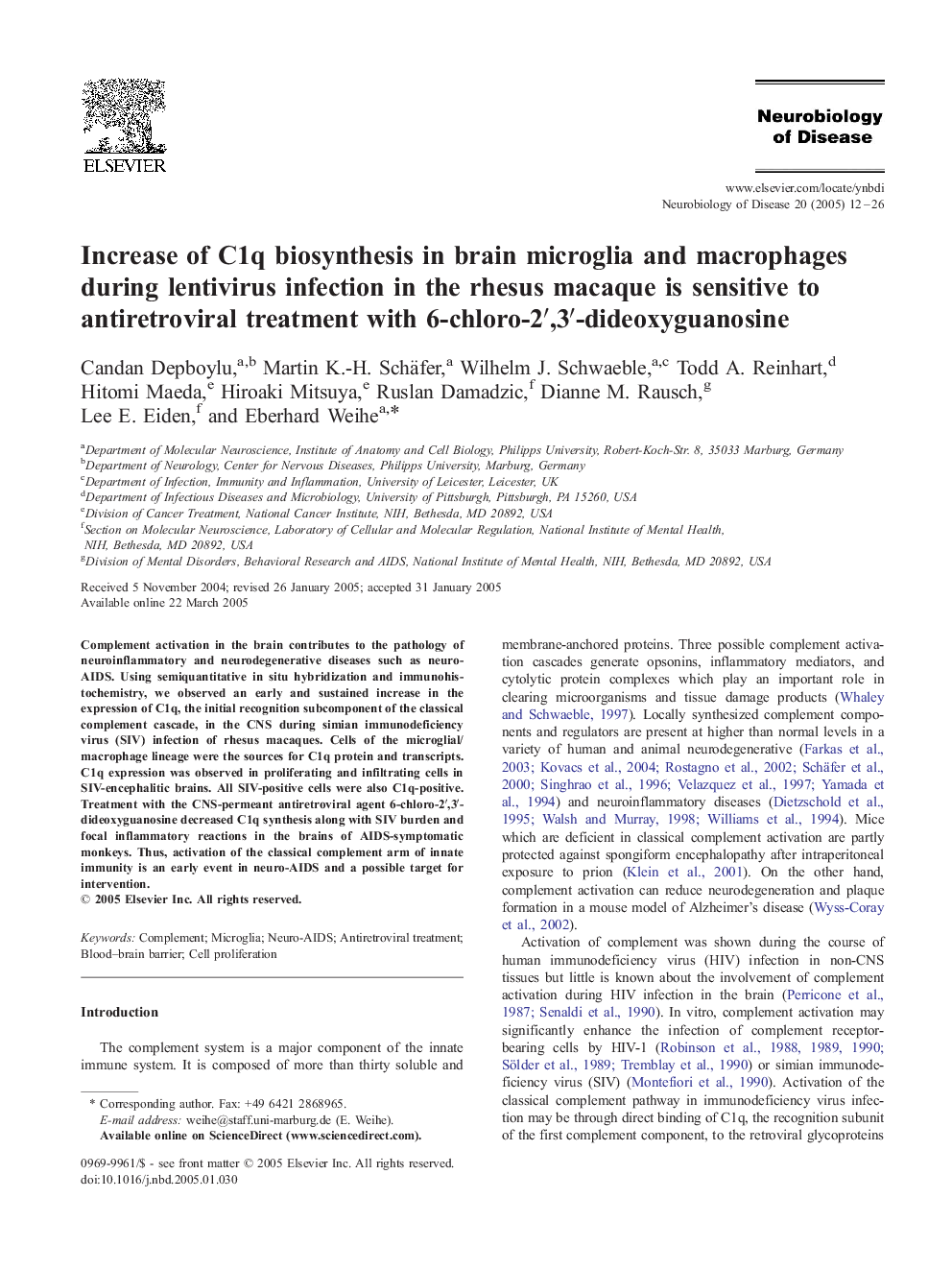| Article ID | Journal | Published Year | Pages | File Type |
|---|---|---|---|---|
| 9989652 | Neurobiology of Disease | 2005 | 15 Pages |
Abstract
Complement activation in the brain contributes to the pathology of neuroinflammatory and neurodegenerative diseases such as neuro-AIDS. Using semiquantitative in situ hybridization and immunohistochemistry, we observed an early and sustained increase in the expression of C1q, the initial recognition subcomponent of the classical complement cascade, in the CNS during simian immunodeficiency virus (SIV) infection of rhesus macaques. Cells of the microglial/macrophage lineage were the sources for C1q protein and transcripts. C1q expression was observed in proliferating and infiltrating cells in SIV-encephalitic brains. All SIV-positive cells were also C1q-positive. Treatment with the CNS-permeant antiretroviral agent 6-chloro-2â²,3â²-dideoxyguanosine decreased C1q synthesis along with SIV burden and focal inflammatory reactions in the brains of AIDS-symptomatic monkeys. Thus, activation of the classical complement arm of innate immunity is an early event in neuro-AIDS and a possible target for intervention.
Related Topics
Life Sciences
Neuroscience
Neurology
Authors
Candan Depboylu, Martin K.-H. Schäfer, Wilhelm J. Schwaeble, Todd A. Reinhart, Hitomi Maeda, Hiroaki Mitsuya, Ruslan Damadzic, Dianne M. Rausch, Lee E. Eiden, Eberhard Weihe,
